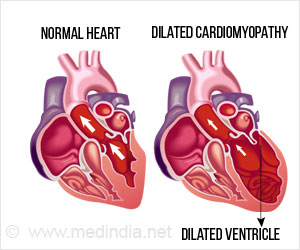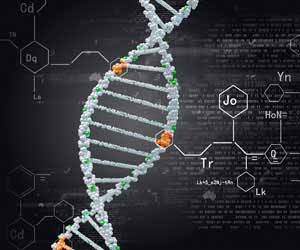Highlights
- Prolonged infection in infants reveal mutations.
- Mutation is the permanent alteration in the DNA sequence.
- Discovery of mutation has allowed the bacteria to tolerate antibiotic therapy.
The study was carried on an infant who is six weeks old and being diagnosed with acute myeloid leukemia. The cancer treatment has wiped out her white blood cells which are capable of protecting her from infections.
The infant was found to develop a blood stream infection with vancomycin-resistant Enterococcus faecium (VRE). The infection was found to persist for 28 days and was found to resolve only when the immune system has recovered.
The research team was able to link the prolonged infection with a point mutation of the reIA gene of vancomycin-resistant Enterococcus faecium (VRE).
Jason Rosch, Ph.D., assistant member of the St. Jude Department of Infectious Diseases, said, "These findings detail a 'perfect storm' for the development of antibiotic tolerance by bacteria that already pose a clinical challenge."
Joshua Wolf, MBBS, assistant member of the same department also said, "The same conditions may be present in other patients with immune systems that have been compromised by chemotherapy or disease."
The mutation has elevated the levels of the signaling molecule alarmone. The increased levels of the signaling molecule alarmone may likely prime the bacteria to survive exposure to multiple antibiotics
Slimy colonies of bacteria are called biofilms. These may be developed at catheters, heart valves and other surfaces.
Dormant cells in the biofilms are called persister cells and are shielded from the immune system. They are difficult to be eradicated with antibiotics.
Wolf, said, "This mutation has particular clinical significance because the antibiotics involved, linezolid and daptomycin, are the last line of defense against VRE infection."
An experimental antibiotic ADEP-4 was found to show promising results in the treatment of bacterial biofilms.
They mainly work by activating the persister cells and eradicate the bacterial biofilms.
The ADEP4 antibiotic was found to kill relA-mutant and non-mutant VRE growing in biofilm in the laboratory.
The research team also concluded that the experimental compounds like ADEP4 in the future may help to provide new approach in treating persistent infections.
The patient’s immune-compromised state is essential for the survival of mutant VRE. However, gene transcription was altered in in reIA-mutant VRE and was able to produce slimy colonies (biofilms).
Rosch, said, "The case expands our understanding of the role of the stringent response in susceptibility and tolerance to a wide range of antibiotics, especially in biofilms."
"It also demonstrates that these mutations can develop and gain a foothold during a human infection."
Mutation
- Mutation is the change or the permanent alteration of the DNA sequence.
- Mutation may either be inherited or acquired.
- Mutation may lead to genetic variations.
- They may occur due to DNA replication or as a result of environmental factors like sunlight, smoking and radiation.
- Mutations are found to disrupt the normal gene activity and may cause cancer.
- What is a mutation? - (http://www.yourgenome.org/facts/what-is-a-mutation)
Source-Medindia
















